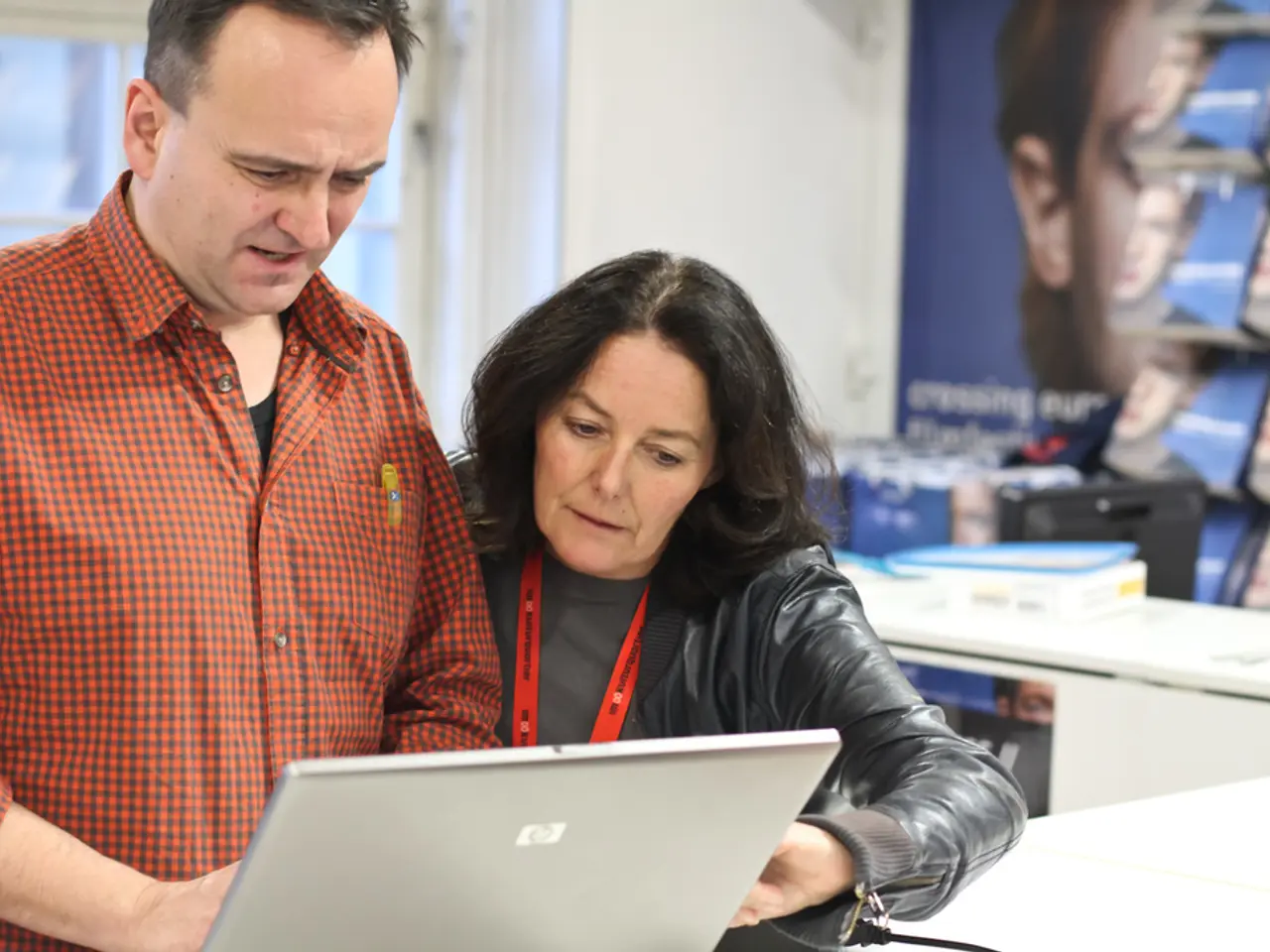Enhanced authenticity verification aids companies in building credibility, warding off deceit and fraud
In the ever-evolving landscape of digital banking, Virgin Money, a digital-first bank owned by CYBG, is leading the charge in securing customer accounts. With over 6 million customers across the UK, the bank has implemented innovative identity verification processes to combat the rising threat of fraud.
One such technology is liveness detection. This cutting-edge approach verifies a user's identity beyond traditional biometrics, asking the question, "are you a real person?" It does this by analysing natural biometric traits and behaviours in real-time video or fingerprint data streams.
Passive liveness detection, in particular, checks for liveness in the background, making it harder for fraudulent actors to spoof real people. This technology, which complements active methods, analyses biometric data captured during normal interaction—such as a selfie or fingerprint scan—using computer vision and machine learning models. These models detect features difficult for spoofing attacks to replicate, such as depth inconsistencies, texture irregularities, and natural physiological motions.
Because passive liveness does not prompt the user for specific gestures or expressions, it offers a frictionless verification experience. If passive checks yield lower confidence, the system may escalate to active challenges that require deliberate user actions to confirm liveness with higher assurance.
Virgin Money uses this technology in conjunction with facial recognition and selfie capture during the identity verification process. This dual approach not only enhances security but also improves the user experience, ensuring a seamless and secure onboarding process for customers.
The adoption of liveness detection is a response to the growing threat of deepfakes and 3D masks that fraudsters are using to fool facial recognition technology. By employing strong authentication methods without sacrificing the user experience, banks like Virgin Money can earn customer trust and differentiate themselves from competitors.
Moreover, liveness detection platforms represent the vanguard in the fight against fraud. They are more effective than human document analysts and can identify signal artifacts in voice authentication attempts that are undetectable to the human ear.
Strong KYC (Know Your Customer) policies are essential for organizations to demonstrate account security. MiPass, a biometric and liveness-based authentication solution, is one such example. By implementing such solutions, banks can not only protect their customers but also comply with regulatory requirements.
As digital banking continues to grow, so too does the importance of robust security measures. Nearly eight in 10 Brits want banks to adopt the latest technology to keep their accounts safe, and liveness detection is a key part of that strategy. By adopting these technologies, banks like Virgin Money are not only staying ahead of the curve but also ensuring the safety and trust of their customers.
- Incorporating liveness detection, facial recognition, and selfie capture into its identity verification process, Virgin Money, a digital-first bank, is bolstering both its security measures and user experience.
- Banks, like Virgin Money, are investing in liveness detection technology not only to protect their customers from deepfakes and 3D masks but also to comply with strict KYC regulations and meet customer expectations for the use of advanced technology in finance and cybersecurity.




